30 November – 2 December 2023
Entangled Archives of Wars: Experiences, Images, and Politics of Representation
Sarajevo – Hotel Holiday, Historical Museum of Bosnia and Herzegovina and public space.
FULL PROGRAM (PDF)
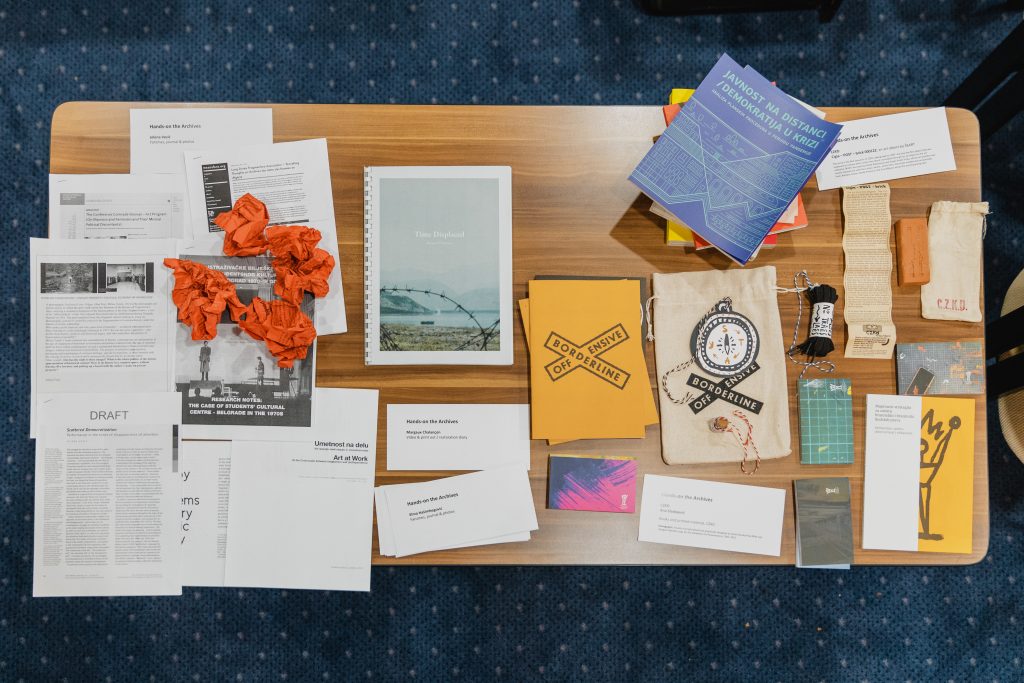
The Entangled Archives of Wars meeting in Sarajevo was one of the public interventions of The ARchipelago, organized by the Goethe-Institut Sarajevo. It brought together a wide range of artists, activists, and archival initiatives from the broader region of the Balkans.
The conference provided a temporary platform for conversations and collaborative archival practices while introducing the archival collection titled “Hands-on the Archives.” Artists, architects, filmmakers, cultural workers, as well as art and media researchers and theorists, were invited to share and reflect on various war or other archives that bear witness to violence, encompassing both human and other-than-human experiences. This included discussions on processes of archival image creation, methods, and the politics of archive representation.
The event delved into various themes that underpin any archive, whether individual, collective, or institutional, as well as exploring the materiality of archival documents and their utilization. Additionally, the conference aimed to analyze the interplay between analog and digital archives concerning public space and the potential applications of digital technology within war-affected ecologies and other-than-human archival practices. Discussions also touched upon archival alliances, aspects of an archival commons, politics surrounding the reproduction and representation of wars, and the incorporation of multi-perspectival approaches.
PARTICIPANTS
Nidžara Ahmetašević, Rozelin Akgün, Nedim Alikadić, Kaya Behkalam, Alba Çakalli & Eroll Bilibani, Margaux Chalançon, Özge Çelikaslan, Karla Crnčević, Danijela Dugandžić, Madhusree Dutta, Zlatan Filipović, Elma Hašimbegović, Lejla Hodžić, Adla Isanović, Ilona Jurkonytė, Farhan Khalid, Nihad Kreśevljaković, Nafis Lokvica, Asja Mandić, Bengi Muzbeg, Armina Pilav, Ana Sladojević, Ljubica Slavković, Aleksandar Staničić, Clarissa Thieme, Damir Ugljen, Lennaart van Oldenborgh, Jelena Vesić.
TEAM:
Ajla Eljšani Arnautlija, Project coordinator at the Goethe-Institut Bosnia and Herzegovina
Rafaela Dražić, Graphic design
Jasmina Đikoli, Public relations
Lejla Hodžić, Coordinator “Hands-on the Archives”, temporary archival collection
Clarissa Thieme, Artistic co-director, The ARchipelago
Armina Pilav, Artistic co-director, The ARchipelago
Simone Voigt, Project manager at the Goethe-Institut Bosnia and Herzegovina
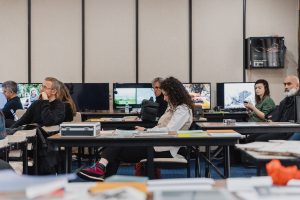
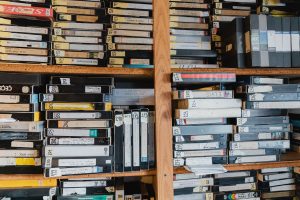
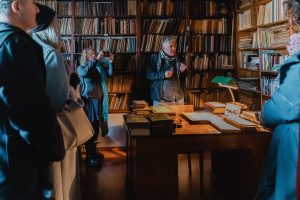
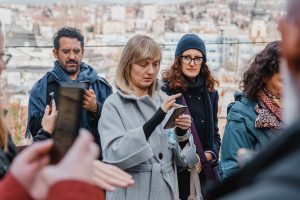

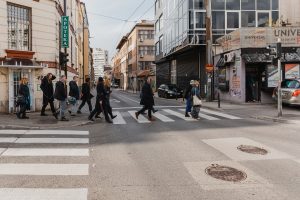
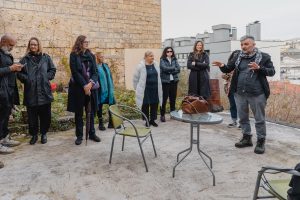
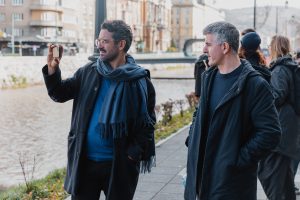

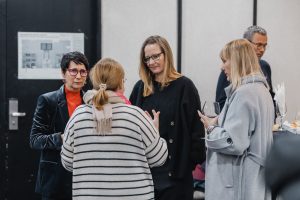
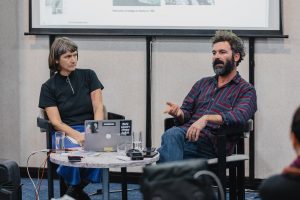
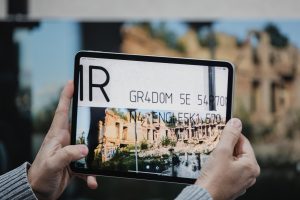
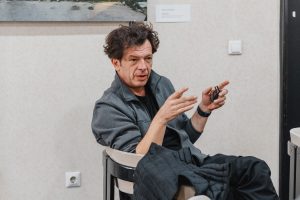
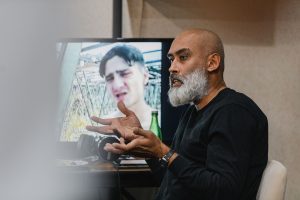
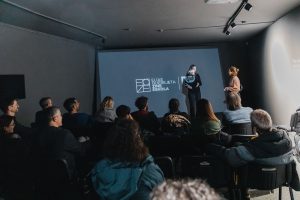
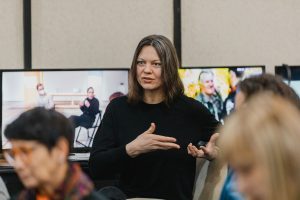
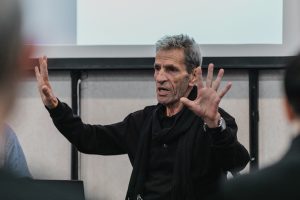
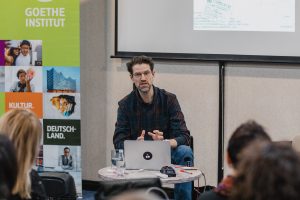
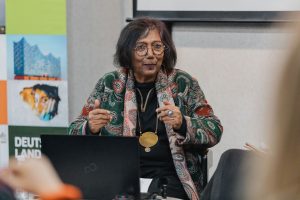
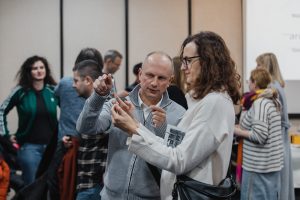
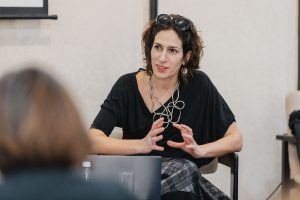
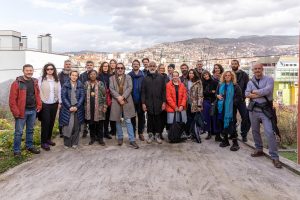
Biographies
Nidžara Ahmetašević is an independent researcher and award-winning journalist from Sarajevo. For over two decades, she has written about human rights violations in the Balkans, focusing on war crimes, women’s rights, and freedom of speech. In 2023, she published the book, “The Media As A Tool Of International Intervention: House of Cards” (Routledge), looking into the role of the media during and after the war in Bosnia and Herzegovina. Ahmetašević holds a PhD from the University of Graz, Austria.
Nedim Alikadić spent the war in his hometown, Sarajevo, as a teenager and a soldier. Even as a child, he loved photography, cameras, and editing. He graduated from the Academy of Performing Arts in Sarajevo at the Department of Directing, majoring in Audiovisual Arts – Film Editor. He has worked on many domestic and international film and TV projects and is the author of numerous advertising and music videos, short films, and documentaries. The documentary film occupies a special place in his work. He co-authored “Do You Remember Sarajevo” (2002), which participated in numerous film festivals worldwide.
Rozelin Akgün is a multidisciplinary artist and researcher based in Diyarbakır, whose practice is rooted in landscape architecture and permaculture design. Her research focuses on biological cycles and bioplastics. The methodology of her BIO archives consists of a scientific part (research) and an artistic part (production and presentation). Organic waste materials are constantly transformed into different forms made for impermanence.
Kaya Behkalam is a visual artist, filmmaker, and writer, living in Berlin. His work is focused on memorial practices in the digital age. Recent projects in this context include the AR projects “Vidness” and “The Augmented Archive” and web-based collaborations such as “A Walking Archive” and “Port Fiction”.
Eroll Bilibani is a film producer and photographer who spearheads educational programs at DokuFest using cinema for social development and understanding complex topics. Eroll co-founded the ‘Future is Here’ film education initiative, an informal and experiential educational program for young people. He’s the executive producer of BAFTA-winning ‘Home’, ‘IN BETWEEN’, and award-winning ‘DISPLACED’. In 2014, the “New Europe 100” initiative recognized Eroll as one of the 100 influential changemakers in Central and Eastern Europe.
Alba Çakalli is the Festival Producer of Dokufest, Prizren. She began her career at DokuFest over a decade ago as a volunteer coordinator. Since then, she has worked across different sections and has made an immense contribution to the growth of the organization. Previously, Alba managed projects such as ‘Film & Factual Media’ and ‘Digital Media Clubs’. She also contributed to establishing infrastructure and strategies for developing the educational department ‘DokuLab’.
Özge Çelikaslan is a practitioner-researcher specializing in autonomous audiovisual archiving, new archival ecosystems in the post-digital era, and collaborative media production. She is co-founder of the Turkey-origin online media archive bak.ma and co-editor of the book “Autonomous Archiving” (dpr-barcelona). Various circumstances and global threats demand a collective re-imagination of archival methodologies. I will elaborate on new forms of continuity that include producing relations (commons) and new works through the archival practice and building care and solidarity infrastructures comprising alliances of archival ecologies (economies).
Margaux Chalançon (b. Paris, 1993) is an audiovisual archivist, film restorer, and freelance post-producer currently based in southern France. In collaboration with EQZE and Nadi Lekol Nas, Margaux restored the 16mm copy of the feature documentary Waheb al Horriyah (The Freedom Giver), directed by Kais al-Zubaidi in 1989 for the Lebanese National Front of Resistance.
Karla Crnčević is the director and editor of the film Wild Flowers. She is a dramaturg and film worker exploring the politics of images and sound through various formats and work conditions. She is one of the founders of Unseen Festival, which deals with revitalizing cinema spaces. She holds an MA in Dramaturgy (ADU, Croatia) and Filmmaking (EQZE, Basque country).
Danijela Dugandžić is a feminist activist, curator, producer, and researcher from Sarajevo. She has been active in the feminist movement for over two decades and is one of the founders and director of the Association for Culture and Art CRVENA. Danijela is moderating a conversation, “Archives of Resistance,” with Jelena Vesić and Elma Hašimbegović.
Madhusree Dutta is a filmmaker, curator, and accidental archivist. Currently, she divides her time between Mumbai and Berlin. She is the former executive director of Majlis Culture Centre (1998-2016), Mumbai, and artistic director of the Academy of the Arts of the World (1998-2021), Cologne. Her interest in narrative making made her invested in the logistics of images – its production cycle, preservation, perception, and conversion. For her, archiving is an action strategy to push the boundaries of evidentiality and the standard of memory practices. Archives are not to frame past images but to make them porous for tomorrow.
Zlatan Filipović is a Media Artist/Educator and Associate Professor of Art and Design at the American University of Sharjah’s College of Architecture, Art and Design. His recent research and teaching focus on the use of digitally augmented and virtual reality technologies in the presentation of cultural heritage and recent histories. His work 54M1R from the 7HE PL4CE5 0F MEM0RY focuses on the archiving and documentation of the architectural structures of the former military barracks “Marshal Tito” in Sarajevo with digital augmentation of personal memories (using AR technologies) connected to this site during the siege of Sarajevo.
Elma Hašimbegović is a historian and museum professional. She received academic degrees at the Faculty of Philosophy in Sarajevo and the Central European University, holding an MA and Phil in medieval studies. Her professional museum career is linked to the History Museum of Bosnia and Herzegovina, where she worked for more than two decades, first as a curator (2001) and from 2013 as a director.
Lejla Hodžić. During the 1993-94 war, she worked at the Obala Art Center in Sarajevo on organizing several exhibitions. From 1997 to 2004, she worked at the Sarajevo Center for Contemporary Art (SCCA) as a program coordinator for visual arts. 2002-03. She conceived and conducted 50 interviews with artists under the title “Breakfast with” SCCA, so.ba, Sarajevo. Since 2004, she has curated numerous art exhibitions in Bosnia and Herzegovina and abroad. She is also the costume designer of four award-winning feature films and created costumes for about 60 and scenography for 20 plays in Bosnia Herzegovina and abroad.
Adla Isanović is an artist and researcher who lives and works in Sarajevo. She is a professor at the Academy of Fine Arts of the University in Sarajevo, where she teaches multimedia. She published the book “The Regime of Digital Coloniality. Bosnian Forensic Contemporaneity” (2021), problematizing how databases are conceived and how they relate to knowledge production in the current environment of global capitalism, biopolitics, and necropolitics. Isanović holds a PhD from the Postgraduate School ZRC SASA, Ljubljana.
Farhan Khalid is a programmer and artist from Pakistan, currently based in Istanbul. His app development work focuses on the use of augmented reality, image recognition, geolocation, and other technologies.
Nihad Kreśevljaković is the director of the MESS International Theatre Festival in Sarajevo. Together with his brother, he founded the local NGO Video Archive – Library Hamdija Kreševljaković, which holds over 1000 hours of recorded materials from the siege of Sarajevo. Kreševljaković co-authored the documentary film “Do You Remember Sarajevo?” (2002) and is co-scriptwriter of “Greta” (1997), among other film projects, and is co-founder of the Open Archive Initiative Izmedju Nas / Between Us.
Nafis Lokvica. Born in 1957, Nafis Lokvica began capturing events, political tensions, and daily life in Prizren with a photo camera from 1974 onwards and a video camera from the 1990s. The Naci & Nafis Lokvica Collection was created by the brothers Lokvica, documenting events, customs, and the architectural transformation of Prizren through photo and video recordings. The Lumbardhi Foundation, Prizren – Kosovo, has recently digitized it.
Ilona Jurkonytė (PhD) is a film curator, a researcher at the Institute of International Relations and Political Science at Vilnius University, Vilnius University Foundation Scholar. Her research focus spans environmental media studies and intersections of science, art, and media. Ilona and Armina Pilav will introduce conversations on Entangled Archives of War. Ilona curates part of a film screening program for Entangled Archives of War.
Asja Mandić is an Associate Professor of modern and contemporary art and museum studies at the University of Sarajevo. Her most recent research deals with art production in the context of urban space and its transformation during the siege of Sarajevo. In her presentation, she will talk about the art action of Ante Jurić and Zoran Bogdanović entitled May 15, 1992, as well as the participation of Predrag Čančar, whose photographs of this performance vanished from one of the archives.
Bengi Muzbeg completed his Ph.D. in Film Studies at Istanbul Marmara University and works as Head of Research and Programme at the Lumbardhi Foundation based in Prizren – Kosovo.
Armina Pilav is an architect, artist, independent researcher, and educator based on the Brač Island in Croatia. Her practice focuses on the politics of re-presentation and re-production of physical, mediated space, bodily experiences in extreme conditions of war destruction or other disaster conditions. Armina is cultivating experimental spaces using transmedia forms, natural habitats, psycho-spatiality, radical observations, and feminist theory to expose ecologies of toxic transformation of architectures, rivers, lands, and interspecies society.
Ana Sladojević is an independent curator and art theorist. In combining curatorial and artistic methodologies in her work, she points at in/visible privilege and in/visible violence perpetuated through the heritage field, which posits itself as normative and paramount in construing social memory and remembrance. She holds a Ph.D. in Interdisciplinary Studies – Group for Theory of Arts and Media, from the University of Arts in Belgrade, Serbia.
Ljubica Slavković is an author, project manager, and program curator at the Center for Cultural Decontamination. The CZKd program cycle “Understanding the city” hosted and presented numerous local and international practices in the fields of urban politics, architecture, and cultural heritage. Ljubica is a graduated architect and PhD candidate at the Faculty of Architecture, University of Belgrade.
Aleksandar Staničić is an architect and assistant professor at TU Delft Faculty of Architecture and the Built Environment. His most recent book is the edited volume War Diaries: Design After the Destruction of Art and Architecture (2022). In his presentation, Aleksandar will talk about the multilayered history of the Generalštab building in Belgrade, the cultural values embedded in its architecture, continuous destruction, and the significance of its preservation.
Clarissa Thieme is a filmmaker and artist focusing on fissures between individual memory and its translation into processes of historical objectification. She is interested in the possibilities of a living archive as a commons. Since the early 2000s, several works and collaborations have taken her to the post-Yugoslav space. Her upcoming project, “Save the Amazon Production – Resumption” at the Video Archive Sarajevo, explores collective artistic practices in conflict across times and localities.
Damir Ugljen is an archaeologist and independent researcher who explores the cultural significance and ecological consequences of material transformation of landscapes, with a particular focus on adaptive responses of non-human and human subjects to newly formed conditions.
Lennaart van Oldenborgh is a documentary film editor and associate lecturer in Media Studies at the Royal College of Art, London. He recently published “Haunted Archives…” (Frames Cinema Journal 2022). His research was catalyzed by a short reel of raw rushes, which he shot in the enclave of east Mostar in 1994, and questions what its value might be as a historical document, how it relates to memory, and what happened to other raw footage of the siege.
Jelena Vesić (Ph.D.) is an independent curator, writer, editor, and lecturer. She is active in publishing, research, and exhibition practices that intertwine political theory and contemporary art. Vesić co-edited Prelom – Journal of Images and Politics (2001–2010, Belgrade) and is co-editor of the journal Red Thread (Istanbul), a member of the editorial board of ARTMargins and the advisory board of Mezosfera (Budapest). She is also president of the Association of Art Critics AICA Serbia.